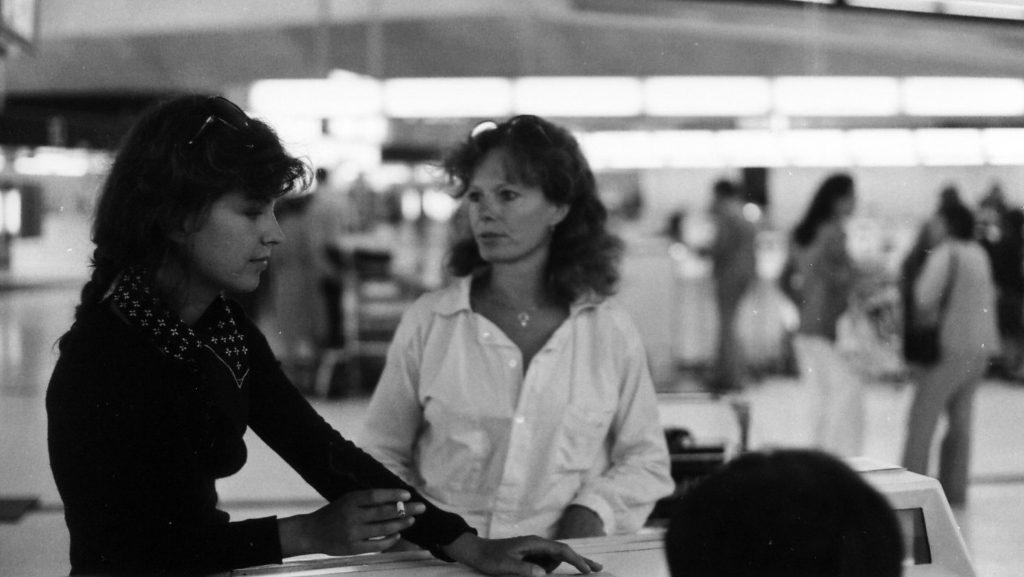Delphine and Carole (Delphine et Carole, Insoumuses)

The Women’s Liberation Movement in 1970s France is viewed through the collaboration of well-known actress Delphine Seyrig and videographer Carole Roussopoulos in Callisto McNulty’s documentary Delphine and Carole (Delphine et Carole, Insoumuses). Founders of the Centre Audiovisuel Simone de Beauvoir, the duo were groundbreakers in advancing the cause. Via vintage film and video footage, black and white photos and testimonials, the history of their alliance in promoting women’s rights is compellingly portrayed.
Bearing witness to an earlier era when feminism was clearly in its infancy, the work focuses primarily on French New Wave cinema actress Delphine’s defiance regarding inequities in the movie industry. An admirer of the Suffragettes, she is shown in various interviews at the time, confronting patriarchal attitudes such as the notion of men “giving” women their freedom, questioning whether it is theirs to give; or accusing those who have had abortions of being sexual “vagabonds”, while men are held to no such standard. As a result of speaking out, she and many other actresses were denied film roles. In 1970s France most parts were restricted by a “ladies should be beautiful and shut up” mentality and there were no feminist female characters.
Various television clips reveal gender prejudices: on Bernard Pivaud’s talk show Apostrophe, it is declared that “women cannot be great chefs”, but are merely mediocre family cooks. Even women held archaic opinions: Madame Minister Francoise Giroud states that no females have won a Nobel or Literary prize and that such a statistic is normal and correct.
The activists use video, a new medium, to interview women in France and the US, regarding sexism in the movie industry and in daily life – with testimonies by actresses Maria Schneider, Juliet Berto and Ellen Burstyn. Jane Fonda speaks of being pressured to have plastic surgery and use fake breasts because “I was a commercial product”; 20,000 women protest the war in Belfast; prostitutes – who pay taxes but have no rights – hold massive occupation events, demanding ethical treatment; official signings are documented: 343 women, some well-known, declare they had abortions, illegal before 1975. Included are interviews with feminist icon Simone de Beauvoir.
An eye-opening, well-conceived and thought-provoking piece, Delphine and Carole vividly highlights the historical struggle for sexual equality, illustrating that although there have been improvements, one might question how much has changed – suggesting that human rights conflicts repeat until we resolve them.
Catherine Sedgwick
Delphine and Carole (Delphine et Carole, Insoumuses) does not have a UK release date yet.
Read more reviews from our Berlin Film Festival 2019 coverage here.
For further information about the event visit the Berlin Film Festival website here.
Watch the trailer for Delphine and Carole (Delphine et Carole, Insoumuses) here:























Facebook
Twitter
Instagram
YouTube
RSS